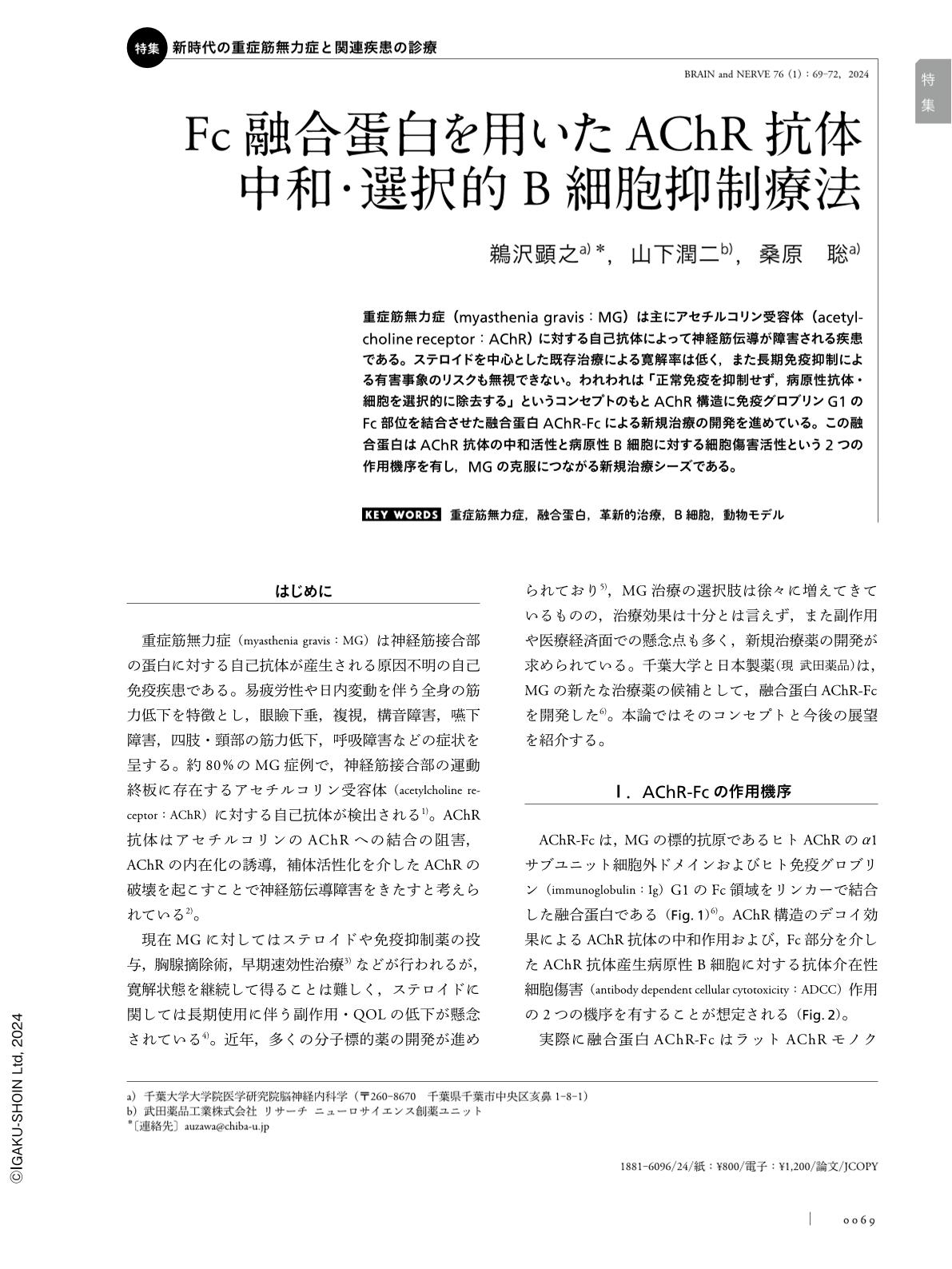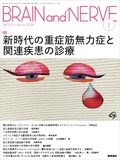Japanese
English
- 有料閲覧
- Abstract 文献概要
- 1ページ目 Look Inside
- 参考文献 Reference
重症筋無力症(myasthenia gravis:MG)は主にアセチルコリン受容体(acetylcholine receptor:AChR)に対する自己抗体によって神経筋伝導が障害される疾患である。ステロイドを中心とした既存治療による寛解率は低く,また長期免疫抑制による有害事象のリスクも無視できない。われわれは「正常免疫を抑制せず,病原性抗体・細胞を選択的に除去する」というコンセプトのもとAChR構造に免疫グロブリンG1のFc部位を結合させた融合蛋白AChR-Fcによる新規治療の開発を進めている。この融合蛋白はAChR抗体の中和活性と病原性B細胞に対する細胞傷害活性という2つの作用機序を有し,MGの克服につながる新規治療シーズである。
Abstract
Myasthenia gravis (MG) is an autoimmune disease characterized by formation of autoantibodies against the nicotinic acetylcholine receptor (AChR). Some patients do not show sufficient improvement and develop adverse effects following administration of conventional immune therapy; therefore, the development of new treatments is important. Based on the concept of “selective removal of pathogenic antibodies and cells without suppression of normal immunity,” we are developing a fusion protein referred to as AChR-Fc (composed of the AChR alpha subunit and Fc region of human immunoglobulin G1), which shows the following mechanisms of action: selective neutralization of AChR antibodies and cytotoxic activity against AChR antibody-producing pathogenic B cells. Treatment with AChR-Fc is a novel therapeutic approach that may be useful in the management of MG.

Copyright © 2024, Igaku-Shoin Ltd. All rights reserved.


